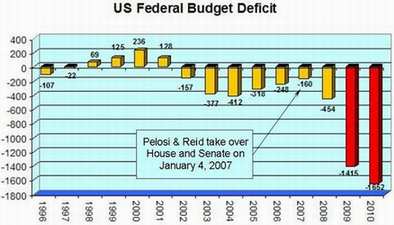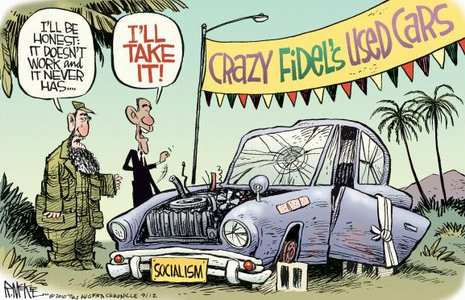Candidates for high political office usually grovel for newspaper endorsements. Not Texas Gov. Rick Perry. Breaking from a decades-old tradition, the governor isn't even bothering to meet with editorial writers, much less ask for their blessing.The statements from the media heads attempt to give us the impression that by avoiding the newspaper editors, Mr Perry is snubbing the people. The Tyler editorial mentions that the voters “deserve to hear substance”, but isn’t Mr Perry providing real substance by avoiding the media filter and communicating directly with the people. Therein lies the real objection to Mr Perry’s strategy. It minimizes the amount of liberal spin the media can put on his message. If Mr Perry allowed the media to deliver his message, it would be unrecognizable by the time it got to the people.The way Perry sees it, newspapers are old news and have lost much of their influence. In a rapidly changing media climate, Perry said he decided before the March primaries that seeking their endorsements was a waste of time… "The most prized resource that you have is the candidate's time, and what is the best return on your investment that you can get with a candidate's time," Perry told The Associated Press. "It was a calculated decision, but you know the world is really changing, I mean, the way people get their information, who they listen to, etc. Put it all on the balance beam and the balance was toward not doing the editorial boards."
Newspaper editorialists have responded to Perry's snub with fury, accusing him of doing a disservice to voters by refusing to submit to unscripted questioning. The staunchly conservative Tyler Morning Telegraph, which Perry once called his "favorite" paper, slapped the longest-serving Texas governor with a blistering front-page editorial on Sunday.
"Your position to not visit with the editorial boards of Texas newspapers may be astute politically, but it demonstrates a disregard for newspaper readers and voters across the state, who deserve to hear substance rather than silence," the editorial said.
Perry also drew an unusual rebuke from the National Conference of Editorial Writers, which called him "disingenuous" for saying he didn't have time to take questions from its members when he spoke to their annual conference last month in Dallas. "If the governor can't take questions from the editorial board, from the press, on behalf of the public, it makes you wonder if they're fit for office," said Tom Waseleski of the Pittsburgh Post-Gazette, former president of the conference. "To out and out refuse to meet with editorial boards is cowardly and reprehensible."
As an example of newspaper “substance”, the far-left Austin American Statesman (known as the “un-American Statesman” to many locals) featured a hit-piece on Mr Perry for renting a “mansion” at taxpayer expense while the Governor’s building is undergoing renovation. In this article, they applauded a gimmick by his opponent, former Houston mayor Bill White, who promised to move into a double-wide trailer if elected. Mr White gave no details on where this trailer was to be located, or how he would handle the required security that must be approved by Homeland Security. A friend of mine remarked that, ”if Mr White does for Texas what he did for Houston, we’ll all be living in trailers within a sanctuary state”. Also absent from the article was the fact that Mr White, a multi-millionaire portrayed as a regular guy, left a $17 billion deficit in the general fund when he left office, and the fact that Mr Perry could have already moved back into the governor’s quarters had it not been torched during the Democratic state convention.
We must disagree however, with those who say that newspaper endorsements are irrelevant. On the contrary, an endorsement by a major newspaper can be very valuable to the voter. For the voter who doesn’t have time to check out the background of all the candidates, especially since the media minimizes or downright purges the liberal candidate’s stance on the issues, its endorsement can reveal a wealth of important information. For example, we know that most major metropolitan newspapers lean to the far left (with a few exceptions such as the Washington Times), so if a candidate receives the endorsement of several major papers, we can be reasonably sure that the candidate is soft on terrorism, pro-death, favors higher taxes, and more entitlement spending. The endorsed candidate will generally have a low view of the constitution, and be either hostile toward religion or friendly to all but Christianity. They will also have voted for nationalized healthcare and bailouts or will support them if a new candidate. It is certainly no coincidence that most major newspapers endorsed Mr Obama.
So, we can see great value in a newspaper’s endorsement. If voters will simply pick up a New York Times, a Houston Chronicle, or almost any other major city newspaper and vote against all those who are endorsed, our country would see vast improvements in a very short time.
 In this post, I’d like to address a few myths that have been circulating the past couple of years. Let first examine the rhetoric surrounding the battle over extending the Bush tax-cuts. With unemployment continuing to climb, businesses are very hesitant to hire workers because of the huge tax increases that they will incur should the extensions fail to pass by the end of this year. Mr Obama and his liberal friends continue to oppose extending the tax cuts to those who create the most jobs, continually insisting that the “rich” need to pay their fair share. The latest data released by the IRS however, reveals that the top 1% of earners already pay 40% of all federal income taxes, and the top 5% pay 60%. Almost half of all wage earners pay no tax at all, and many receive "refunds" as earned income credit. We'll discuss the topics of redistribution of wealth and charity in an upcoming post.
In this post, I’d like to address a few myths that have been circulating the past couple of years. Let first examine the rhetoric surrounding the battle over extending the Bush tax-cuts. With unemployment continuing to climb, businesses are very hesitant to hire workers because of the huge tax increases that they will incur should the extensions fail to pass by the end of this year. Mr Obama and his liberal friends continue to oppose extending the tax cuts to those who create the most jobs, continually insisting that the “rich” need to pay their fair share. The latest data released by the IRS however, reveals that the top 1% of earners already pay 40% of all federal income taxes, and the top 5% pay 60%. Almost half of all wage earners pay no tax at all, and many receive "refunds" as earned income credit. We'll discuss the topics of redistribution of wealth and charity in an upcoming post. Mr Obama frequently blames the slow economy on former President Bush, and his lapdogs in the media dutifully and gladly echo these accusations. His favorite line is that the Republicans drove the economy into a ditch and he’s working hard to get it out. Never mind that many top economists have maintained that
Mr Obama frequently blames the slow economy on former President Bush, and his lapdogs in the media dutifully and gladly echo these accusations. His favorite line is that the Republicans drove the economy into a ditch and he’s working hard to get it out. Never mind that many top economists have maintained that  We are overjoyed to relay the news that God has graciously returned our son Justin safely from the war zone in Afghanistan. He had been serving with his US Marine unit since early this year and arrived in Palm Springs, Ca about 3am Thursday morning. My wife Melody and future daughter-in-law Kayla were there to welcome him back. They are currently still visiting since he doesn't have to be back at base until Monday morning.
We are overjoyed to relay the news that God has graciously returned our son Justin safely from the war zone in Afghanistan. He had been serving with his US Marine unit since early this year and arrived in Palm Springs, Ca about 3am Thursday morning. My wife Melody and future daughter-in-law Kayla were there to welcome him back. They are currently still visiting since he doesn't have to be back at base until Monday morning. Fortunately, we can reasonably hope that, unlike macro-evolution, free enterprise can eventually overcome these devastating policies. Unfortunately, judging by past history, the more a liberal government interjects itself in an attempt to fix the problem, the longer the problem lasts. Mr Obama, Ms Pelosi, Mr Reid and associates urge us to look to the future, but their ideology is firmly rooted in the past, from the “manufactured crisis” design of German philosopher GWF Hegel (18-19th century) to the economic concepts of 19th century German philosopher Karl Marx. Even Cuban dictator Fidel Castro recently admitted that socialism is an absolute failure as an economic system. Yet Mr Obama and friends persist in pushing these disastrous policies.
Fortunately, we can reasonably hope that, unlike macro-evolution, free enterprise can eventually overcome these devastating policies. Unfortunately, judging by past history, the more a liberal government interjects itself in an attempt to fix the problem, the longer the problem lasts. Mr Obama, Ms Pelosi, Mr Reid and associates urge us to look to the future, but their ideology is firmly rooted in the past, from the “manufactured crisis” design of German philosopher GWF Hegel (18-19th century) to the economic concepts of 19th century German philosopher Karl Marx. Even Cuban dictator Fidel Castro recently admitted that socialism is an absolute failure as an economic system. Yet Mr Obama and friends persist in pushing these disastrous policies.